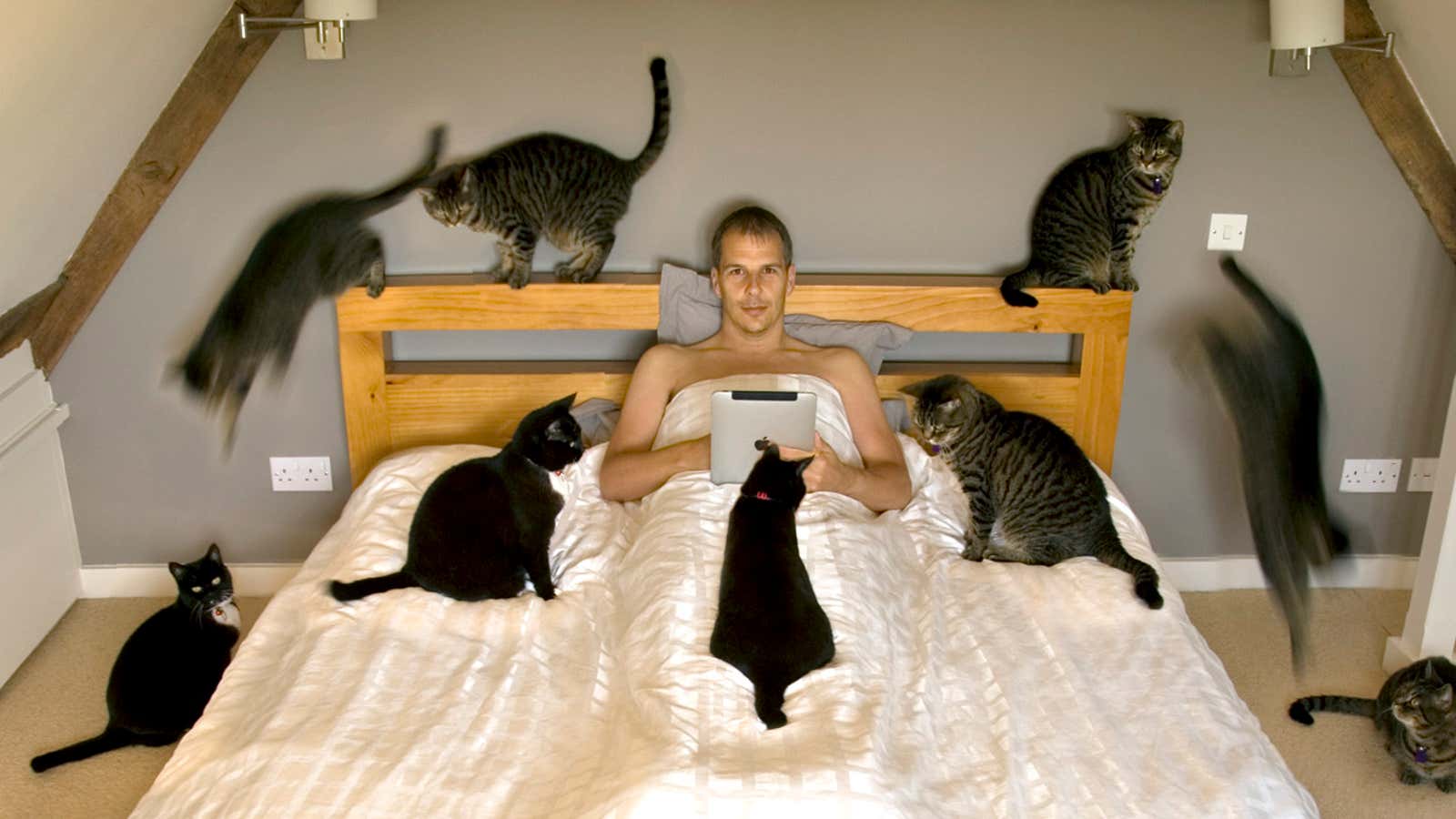In a crazy sleep experiment a few years ago, I reduced my sleep from eight hours to a little more than four. I managed to do it by following a polyphasic sleep schedule, where I got a few hours of sleep at night and took short naps during the day. I was quite proud of myself—but then I discovered that some people can get by with even less sleep, without major difficulties.
For many decades scientists have been aware that some humans—by one estimate as much as 1% of the population—seem to be resistant to sleep deprivation. Despite their drastically reduced hours of sleep, these exceptional people show no apparent symptoms of sleep deprivation and often lead healthy, successful lives. From Winston Churchill to Marissa Mayer, there are plenty of examples of successful people who manage to get by on four hours of sleep a night. But how?
The Enigma of Sleep
Despite our ability to understand biological processes in great detail and even though a sleep-like state is observed in nearly all animals, the inner workings of how we sleep remain poorly understood. What we know is that sleep is critical to our well-being: Sleep-deprivation studies show ill-effects such as increased risk of heart disease, cancer, or neurodegenerative diseases.
What makes the people resistant to sleep deprivation so special? One answer came from an anomalous result in the sleep data that Ying-Hui Fu, a geneticist at the University of California at San Francisco, had so carefully managed for many years. In the hundreds of people she had studied, Fu found a mother-daughter pair who could both get away with only six hours of sleep—that is, two hours below average—without any ill-effects.
The familial relationship stood out to the geneticist, and, as she suspected, DNA analysis revealed a genetic mutation that was common to the pair. When she inserted the mutation into the genome of mice, she seemed to have conferred upon the rodents the ability to get by on less sleep too.
Fu’s human finding, published in Science in 2009, was supported by past work into the genetics of sleep in animal models. In the 1990s, scientists had located genes that controlled the circadian rhythm—the body’s internal biological clock that regulates sleep. They found that the appropriately named CLOCK gene could be manipulated to change how mice slept.
The mutation that Fu found in the mother-daughter pair was in the DEC2 gene, which is related to the CLOCK gene, and the remarkable finding spurred others to start looking into the genetics of sleep in humans.
Revealing twins
One of those most intrigued by the results was Allan Pack at the University of Pennsylvania. He followed up Fu’s work with research on subjects who had acute or chronic sleep deprivation.
Among the 400 people’s DNA that he analyzed, Pack was lucky to find a similar mutation in one of two fraternal twins. This was the perfect opportunity to find a more convincing answer to how much genes affected sleep.
Unlike identical twins, who have identical genomes, fraternal twins generally share about half of their genomes. The mutation Pack found in one of the twins was not the same as the one Fu had found, but related to it. Still the mutant twin showed similar skill at dealing with a lack of sleep.
That twin, Pack reported in a 2012 study in Sleep, needed less sleep to recover from sleep deprivation and showed fewer performance lapses while deprived of sleep.
Pack concluded that it was not just one gene mutation, but perhaps many variants that could confer similar resistance to sleep deprivation. His analysis also revealed that these genes were inheritable: If your parents or grandparents got away with very little sleep, then you likely could too.
After Pack’s study it seemed that more and more variants would be revealed. After all, the studies done so far had involved few people. The greater the sample size, the greater the statistical power to detect true correlations.
But when a 2013 study tried to replicate many of the previously reported correlations between length of sleep and genes, using the DNA and self-reported sleeping habits of some 5,000 people, it failed.
Endowing benefits to all
There’s still hope that more evidence of the connection between genes and sleep needs will emerge. Fu’s 2009 study—which found a gene mutation in humans, then tested it in animals—is unusual in genetic studies. Usually, animal studies give insight into what may happen in humans. Going forward, efforts to map the full connection between sleep and genes will likely rely on animal studies.
Animal studies have consistently shown that genetic changes can affect sleep in model animals such as fruit flies and rodents. For instance, a study published in Current Biology that is to appear in the June 29 issue of the journal found a gene variant called taranis that was associated with drastically reduced sleep in fruit flies. And that is but the most recent example of genes that have been associated with sleep.
When more is known about genes and sleep, databases such as the BioBank UK, which is collecting the genetic data of 100,000 people, are bound to find the gene variants that affect humans’ need for sleep.
And once we understand why certain people get away with so little sleep, Pack told Quartz, we may even find ways to help the rest of us function similarly.
